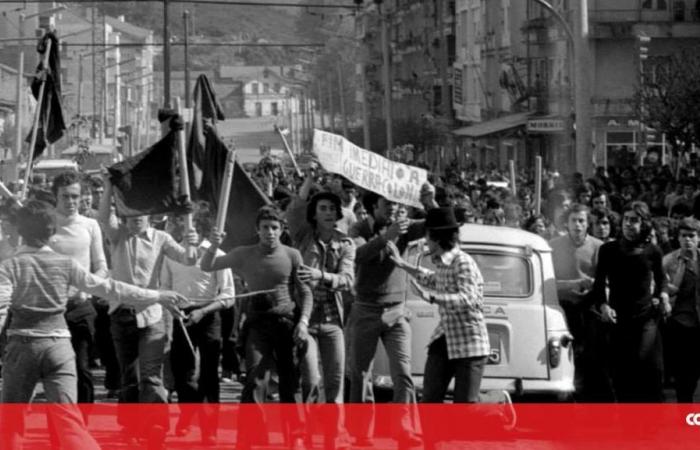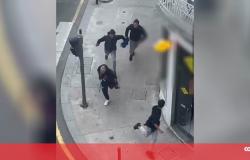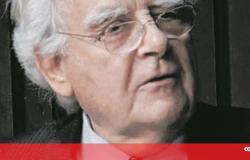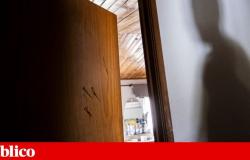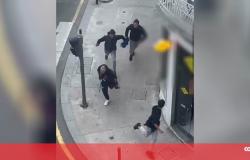Per Filipa Novais
11:56
The news of the 25th of April revolution, which was taking place in Lisbon, reached Braga late and only the following day, on 26th April, did the population of Braga take to the streets to celebrate. In addition to being more than 350 kilometers from the capital – at a time when it took a whole day to travel the Braga-Lisbon route –, the information took a while to reach the most distant cities. But when it became known that the revolution was favorable, joy took over the city and the people of Braga invaded the streets and squares to celebrate the much-desired freedom.
In the early hours of the day, young people from Liceu Sá de Miranda interrupted classes and went to call all their classmates to go out to celebrate. “I remember grabbing the high school bell and starting to ring it”, says José Miguel Braga, who was just 16 years old at the time.
The first stop of the day was at Liceu Dona Maria II, a girls’ school. Boys and girls, together, marched out of Braga towards the city’s factories. Students and workers, with flags and posters in hand and loud voices, walked through the streets until reaching the center, Avenida da Liberdade. These moments were recorded by the lens of José Delgado, a photojournalist from Braga, who took to the streets with a camera in his hands to portray the day of celebration in the city, from which the 28th of May coup had emerged, which established the dictatorship that gave rise to the State New.
Loading the video …
April 26, 1974 told by those who lived it
“Braga blossomed. And it blossomed. So many people on the street. It was an exhilarating joy, a crazy joy. Because it really was a day of celebration”, recalls Maria Manuel Marques. She was 26 years old at the time, taught at the Carlos Amarante Industrial School and already had a five-year-old daughter. Her husband, Arthur, had gone to the Colonial War a week ago: “I lived in terrible fear. Terrible. Me and all the women who had husbands, companions, brothers” in Africa.
What began with a demonstration of students and workers on the morning of April 26th, turned into a rally in the afternoon in Praça do Município, with thousands of people gathered in euphoria, celebrating freedom and democracy.
On the walls of the streets, in conversations in cafes and on the radiant faces of citizens one could feel the promise of a new Portugal, far from the regime that had silenced the country for 48 years. “It was a monitored country. The blue pencil worked: there were banned books, banned meetings, banned rallies, people in prison and we were aware of that”, says José Miguel Braga. Despite being only 16 years old, José and his friends were active supporters of regime change and were interested in politics.
Marx and Engels
Before the 25th of April, Portugal was closed to the world. People were aware that they were living poorly and young people, who from an early age were aware of poverty and illiteracy, saw their future threatened by the prospect of having to fight in the Colonial War.
They took risks, distributed pamphlets, organized clandestine meetings and read banned books. “Those were different times. There was a lot of talk about politics between us”, recalls José António Barbosa. When April 25th happened, he was 17 years old and attended Liceu Sá de Miranda. He was one of the students who boycotted classes to go out to celebrate.
On the street, at school, in cafes, they talked about the changes they wanted to see in the country, but at home, often, the speech had to be different: “I remember once [o meu pai…] discovering the ‘Manifesto of the Communist Party of Marx and Engels’ under a mattress and giving me a big lecture. Because my father was a complete supporter of the regime”, confesses José Barbosa.
I remember once [o meu pai…] discovered the ‘Manifesto of the Communist Party of Marx and Engels’ under a mattress and gave me a big lecture
José Barbosa, who was 17 years old at the time
Maria Manuel Marques says she lived in fear of being caught by PIDE. Many nights she would stay awake at home, terrified, with her daughter, until her husband returned from clandestine meetings. The cars used to go to these meetings were frequently changed, so as not to arouse suspicion and the militants’ locations varied from house to house. Maria was always afraid that something would happen and that she would have no one to ask for help.
The fear of ‘snitches’ was real. Even though it was not known what was going to happen on April 25, 1974, the feeling was common: something had to happen, and quickly, as “the country was in an extreme situation”, says Maria.
Recreation of the Democratic Movement rally
It was from Braga that, on May 28, 1926, the military uprising led by General Gomes da Costa took place, who marched to Lisbon. The military dictatorship, which began then, gave rise to the Estado Novo founded by Salazar. On April 26, 1974, after 48 years of dictatorship, the Braga District Democratic Movement rally marked the end of the regime. On this 26th, at 4 pm, 2500 people recreate this historic moment in Praça do Município. The initiative will count on the participation of schools, extras and military personnel from 25 de Abril.
Photographs José Delgado | Image Nuno Veiga | Edition Ana Sofia Pinto

